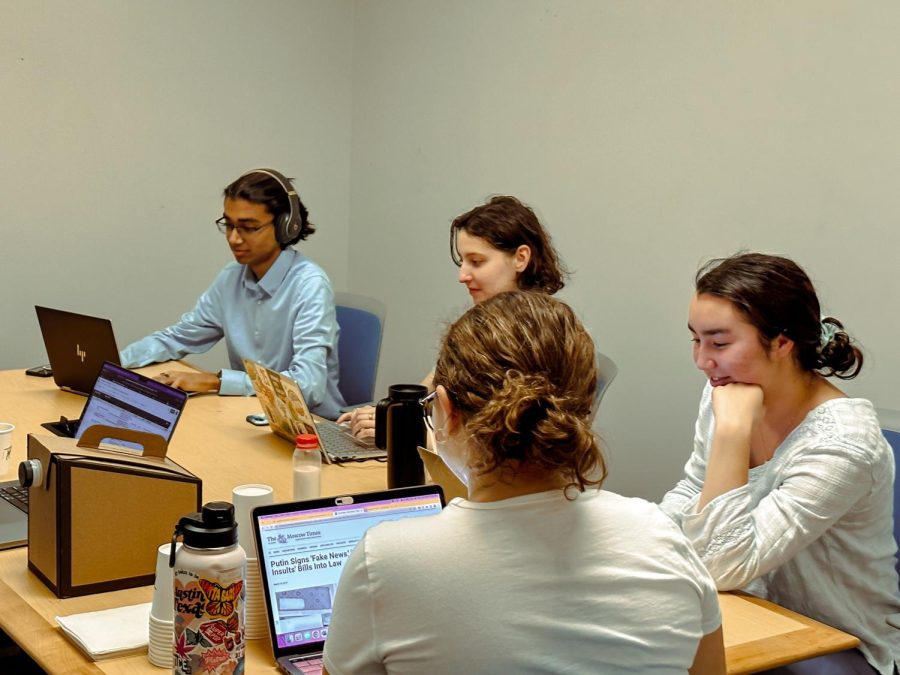UT researchers building Global Disinformation Policy Database, collection of laws related to misinformation
February 22, 2023
Researchers from the Lyndon B. Johnson School of Public Affairs and UT’s Global Disinformation Lab are collaborating to create a database of global laws related to disinformation and misinformation.
Ryan Williams, the Global Disinformation Policy Database’s leader, said the team is looking at laws across different countries to compare them for any patterns and understand how other countries approach misinformation.
Misinformation is sharing false information without a malicious intent, while disinformation involves purposefully spreading inaccurate information.
Williams, a Ph.D. student at the LBJ School, said he was motivated to begin the project last semester because global policy databases are rare.
“The closest we’ve seen are one-off research efforts into trying to find relevant laws about COVID misinformation, but there hasn’t been an effort to systematically compare and create a policy database for the research community,” Williams said.
Williams said the team is working on a comprehensive global scan for every country they are considering for the database. The database will be constructed by developing search terms that involve words such as “misinformation,” a policy term and a country name. The team will then use the inputs to generate results through an automation tool such as an application programming interface.
Ashley Yup, a graduate researcher working on the database and master’s student at the LBJ School, said the most exciting part of the research for her is learning about each government’s unique approach to disinformation.
“There was a researcher who found some laws regarding witchcraft in Zambia, and I would never anticipate hearing about that with how I think about disinformation,” Yup said. “There’s always a way of thinking about disinformation that you wouldn’t have anticipated.”
The team will be using the collected data to create an interactive data explorer on a website for public use.
“(I hope) policymakers, technologists and researchers lean on our data to help them understand what has been so they can imagine something new,” Williams said.
Yup said the global nature of disinformation necessitates a central tactic to slow it down.
“With different methods of governance, there will be different preferences for how to combat the spread of disinformation, so it’s important to be able to foster a cohesive strategy to reduce the spread,” Yup said.



